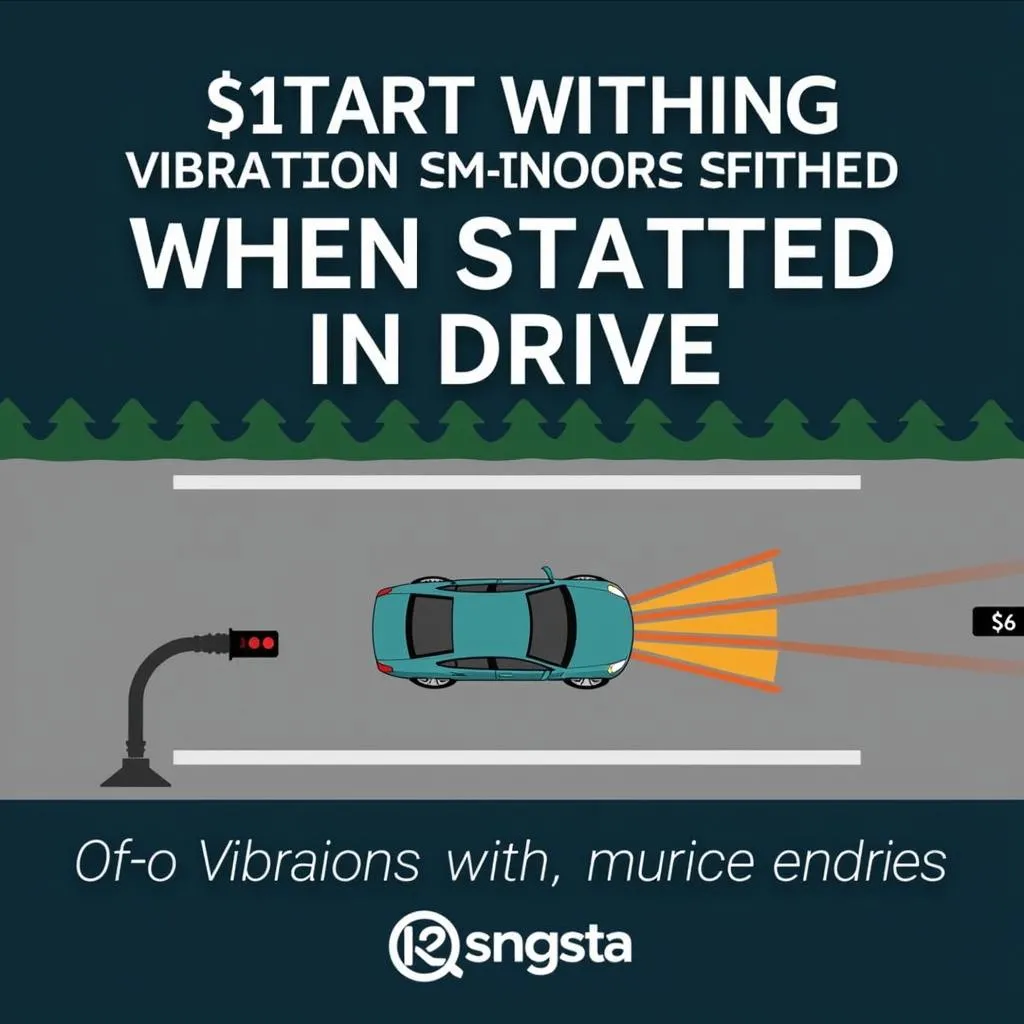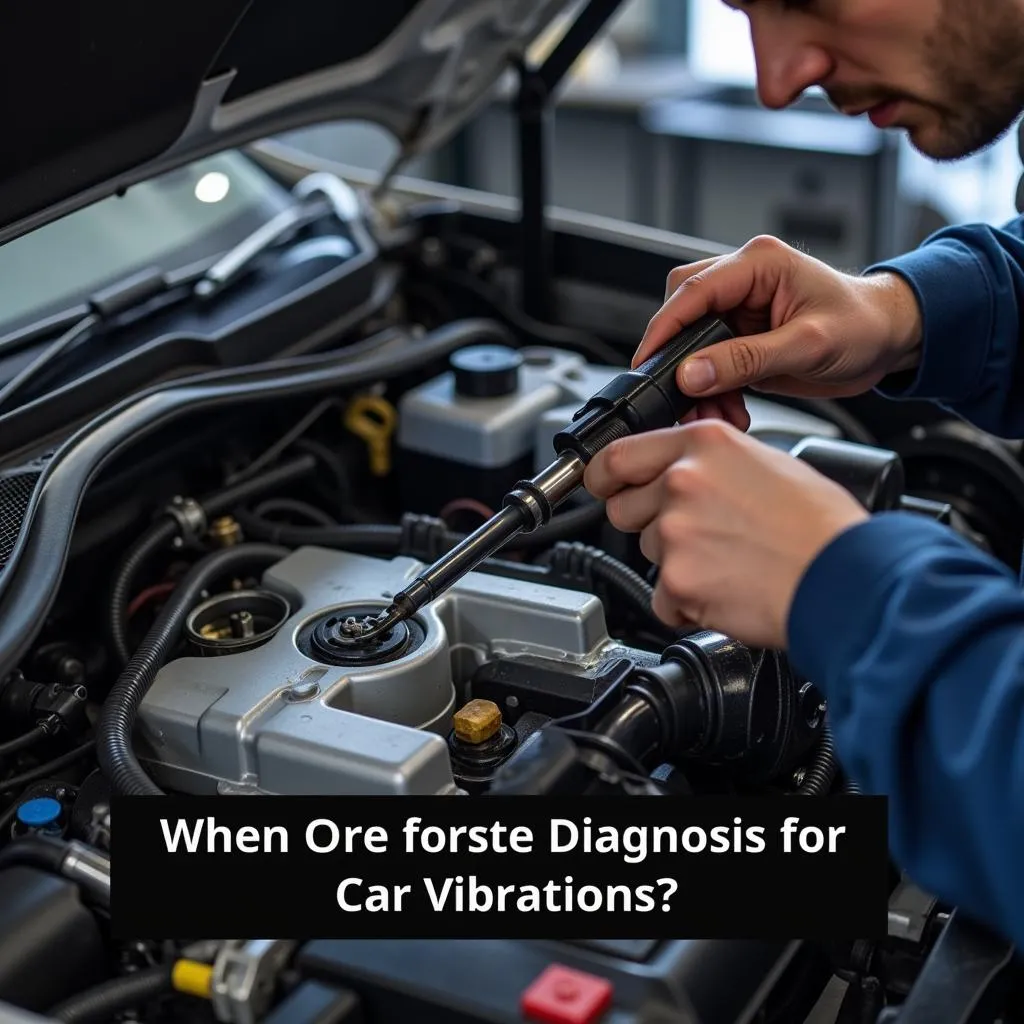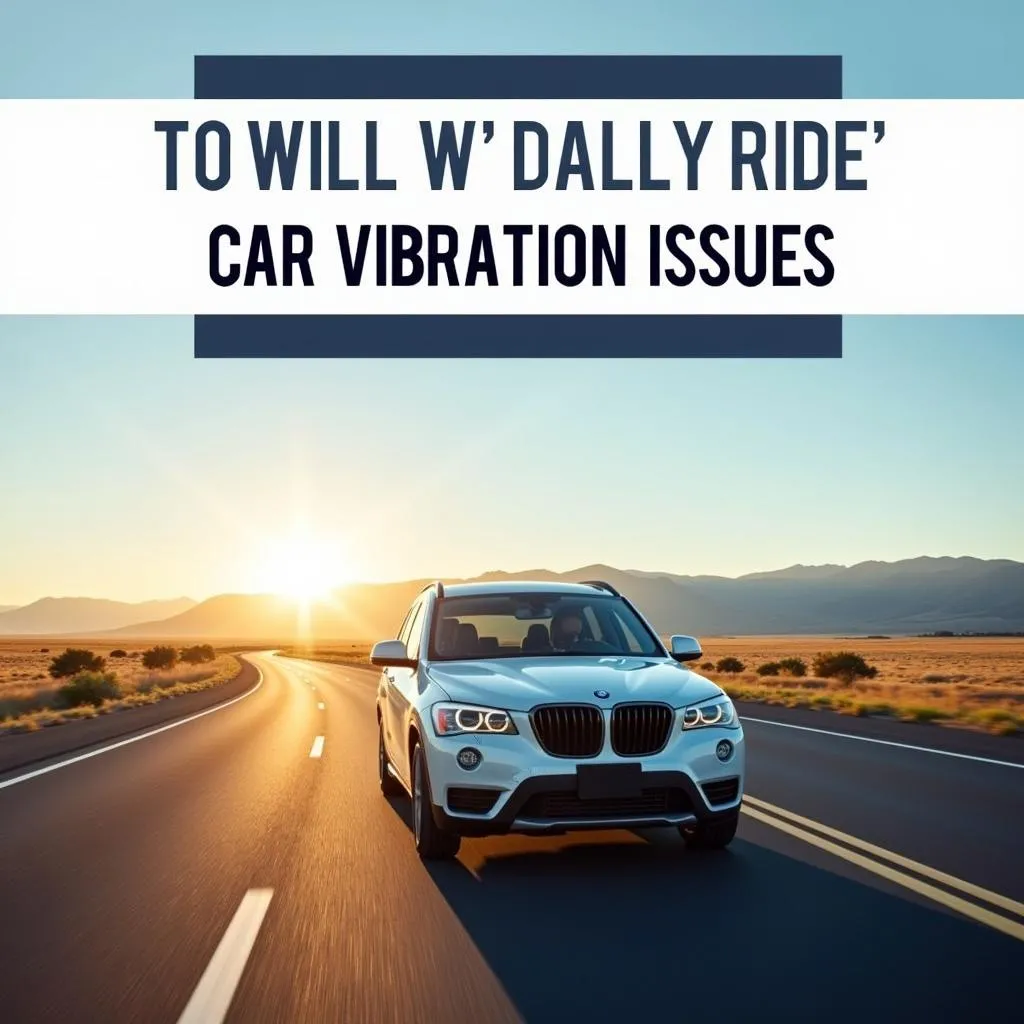You’re sitting at a red light, foot on the brake, and suddenly you feel it – a rhythmic shudder coursing through your car. Your vehicle, seemingly content just moments ago, is now vibrating noticeably while in drive. Before you hit the panic button, understand that this is a common issue with a variety of potential causes, many of which are easily addressed. This article dives into the common reasons your car vibrates when stopped in drive and explores the potential solutions to get you back on the road, vibration-free.
 Car Vibrating at a Stop Light
Car Vibrating at a Stop Light
Why Does My Car Shake When Stopped in Drive?
Cars are complex machines with numerous components working in harmony. When one or more of these components deviate from their intended function, vibrations can occur. Let’s explore some of the most frequent culprits behind car vibrations when stopped in drive:
1. Engine Mount Issues
Your engine mounts are the unsung heroes that dampen engine vibrations and keep your car running smoothly. Over time, these mounts can wear out, become loose, or even break. When this happens, the engine’s natural vibrations aren’t properly absorbed, leading to noticeable shaking, especially when the car is idle in drive.
Expert Insight: “Engine mounts are like shock absorbers for your engine,” says John Smith, Senior Automotive Technician at XYZ Auto. “When they wear out, it’s like driving without shocks – you’re going to feel every bump and vibration.”
2. Transmission Problems
While less common than engine mount issues, problems within your car’s transmission can also cause vibrations when stopped in drive. A worn-out torque converter, low transmission fluid, or internal mechanical issues can all contribute to this shaking sensation.
3. Spark Plugs and Ignition System
A misfiring spark plug or a problem within the ignition system can cause the engine to run rough, leading to vibrations. This shaking can be more pronounced at idle when the engine is under less load.
4. Fuel System Issues
A dirty fuel filter, clogged fuel injectors, or a failing fuel pump can disrupt the proper flow of fuel to the engine. This disruption can lead to an imbalanced air-fuel mixture, causing the engine to shudder and vibrate.
 Mechanic Inspecting a Car Engine
Mechanic Inspecting a Car Engine
Diagnosing the Vibrations
Identifying the specific cause of your car’s vibrations requires a systematic approach. Here’s a step-by-step guide:
- Pay attention to the vibrations: Are they constant or intermittent? Do they worsen when you accelerate? Do they only occur when the engine is warm or cold?
- Check your dashboard: Look for any warning lights, particularly the “Check Engine” light.
- Inspect under the hood: Carefully examine the engine bay for any loose or damaged components, fluid leaks, or signs of wear and tear.
If you’re unsure about any of these steps or suspect a more serious issue, it’s best to consult a qualified mechanic.
Addressing the Problem
The solution to your car vibrating when stopped in drive depends entirely on the underlying cause. Here’s a breakdown:
- Engine Mount Replacement: Worn or damaged engine mounts need to be replaced.
- Transmission Service: A qualified mechanic can diagnose and repair transmission problems, which may involve fluid flushes, component replacement, or even a rebuild in severe cases.
- Spark Plug and Ignition System Repair: Replacing worn spark plugs, ignition coils, or other faulty components can resolve ignition-related vibrations.
- Fuel System Cleaning: Cleaning or replacing the fuel filter, cleaning fuel injectors, or addressing fuel pump issues can restore proper fuel delivery and eliminate vibrations.
FAQs about Car Vibrations
Q: Can low tire pressure cause my car to vibrate when stopped?
A: While low tire pressure can cause vibrations, it typically manifests at higher speeds, not necessarily when stopped in drive.
Q: Is it safe to drive my car if it’s vibrating?
A: It depends on the severity and cause of the vibrations. If the shaking is severe or you suspect a serious issue, it’s best to avoid driving and seek immediate mechanical attention.
Q: How much does it cost to fix car vibrations?
A: Repair costs vary widely depending on the cause. Simple fixes like spark plug replacements are relatively inexpensive, while complex transmission repairs can be costly.
Exploring Further
For more insights into car vibrations and related issues, you might find these articles helpful:
Take Control of the Road
A car that vibrates when stopped in drive isn’t just an annoyance; it’s a sign that something requires attention. By understanding the potential causes, taking steps to diagnose the issue, and addressing it promptly, you can ensure a smoother, safer, and more enjoyable driving experience.
 Car Driving Smoothly on Road
Car Driving Smoothly on Road
Remember, if you’re ever unsure about your car’s health, don’t hesitate to contact us via WhatsApp: +1(641)206-8880, Email: [email protected]. You can also visit us at 276 Reock St, City of Orange, NJ 07050, United States. Our dedicated team is available 24/7 to provide assistance and guidance.